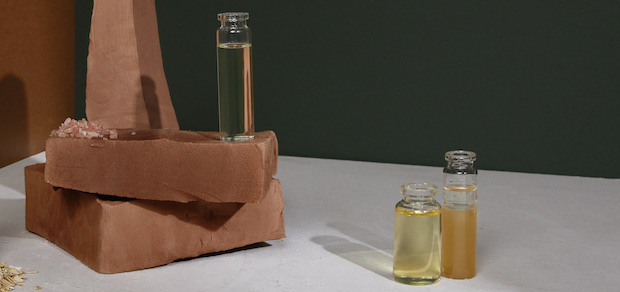
Can Oils Help My Psoriasis?
Most people with psoriasis find relief from their symptoms with a combination of traditional treatments, lifestyle changes, and natural at-home remedies, such as moisturizing oils. However, there’s not enough scientific research to prove that oils actually make a difference to psoriasis symptoms—so your dermatologist might not suggest that you stock up on oils for those itchy, flaky plaques.
“Oils are not an approved therapy for psoriasis, as there are no randomized studies evaluating their use,” warns board-certified dermatologist Rhonda Klein, M.D. of Modern Dermatology in Westport, Connecticut. “Thus, caution is advised.”
Still, many people who live with psoriasis do find relief from certain oils, so they may be worth a try. If you want to use them, ask your doctor first, as some oils aren’t recommended for people with certain health conditions or people who are pregnant or breastfeeding.
Also, test out a dot of the oil on a small area of skin—for example, apply daily on your inner wrist for one week—before applying it all over your body, says Klein. That way, if your skin reacts to it, it’ll more likely be a small nuisance rather than a huge one. The most common side effect is an itchy rash called contact dermatitis, which is caused by a skin allergy to the oil. If you experience any side effects, stop using the oil immediately and seek medical advice.
No oil will cure your psoriasis—in fact, there’s not even a prescription treatment guaranteed to do that—but oils are worth considering if you’re looking for something to soften and moisturize your skin. Here are four oils that are tried, tested, and recommended by some people with psoriasis.
Coconut Oil
Julie F., 42, in Detroit, Michigan, says she applies coconut oil to her skin twice a day, and she swears by it to soften her psoriasis plaques and help relieve itching. She also uses it once a week on her scalp psoriasis.
“I massage a few tablespoons of coconut oil into my scalp, cover my head with a plastic shower cap to lock in the moisture, and leave it on overnight,” she says. “The next morning, I rinse then wash my hair with my usual coal tar shampoo.”
According to Klein, coconut oil is anti-inflammatory, moisturizing, and soothing, so this may bring relief from the itch and discomfort of thick psoriatic plaques. No studies say coconut oil is effective for psoriasis, but none say it’s harmful, either.
Lavender Essential Oil
One of the most studied oils is lavender essential oil, which has been shown to encourage relaxation and soothe inflammation, including in a study focusing specifically on psoriatic inflammation. Although more research is needed to scientifically prove a positive effect on psoriasis symptoms, Hailie W., 26, in Bakersfield, California, says she uses lavender oil, mixed with a carrier oil, to help keep her stress levels down. Carrier oils, such as coconut, sweet almond, or jojoba oil, are used to dilute essential oils and “carry” them to your skin.
“Stress is one of my personal psoriasis triggers,” she says. “I mix a few drops of lavender oil with coconut oil and massage it into my patches of psoriasis, and I like to add a few drops of lavender oil to my bath. I feel much more relaxed afterward—and my skin feels softer, too.”
Tea Tree Essential Oil
Native to Australia, tea tree oil is considered to have antiseptic qualities and a substantial body of research supports its antimicrobial and anti-inflammatory effects, including an article in Skin Pharmacology and Physiology that points out the oil’s anti-psoriatic properties. According to the National Psoriasis Foundation, some people find that using shampoo containing tea tree oil helps to relieve their scalp psoriasis.
Board-certified dermatologist and American Academy of Dermatology spokesperson Debra Jaliman, M.D., recommends tea tree oil for psoriasis based on the fact that it contains several compounds proven to kill certain bacteria and viruses. She says that some people with psoriasis find it soothes redness and inflammation on affected areas of skin. But before you apply it, it’s important to dilute it in a carrier oil, such as argan, castor, or coconut oil.
Black Seed Oil
Black seed oil has been used for centuries to treat various ailments, due to its anti-inflammatory, antimicrobial, and pain-relieving properties. Some people apply black seed oil (also known as black cumin oil) to their psoriasis. And a study performed on rats found that the oil inhibited “psoriasis-like inflammation.”
“I massage it in small amounts into my skin,” says John P., 50, in Dallas, Texas. “It leaves my plaques softer and my skin feeling moisturized, so it ticks all the boxes for an at-home psoriasis treatment.”
You May Also Like:
Want to Read More?
Access all of Twill Care’s content, community, and experts for free!
Already a member? Login
Want to Read More?
Access all of Twill Care’s content, community, and experts for free!
sign UP For FreeAlready a member? Login

